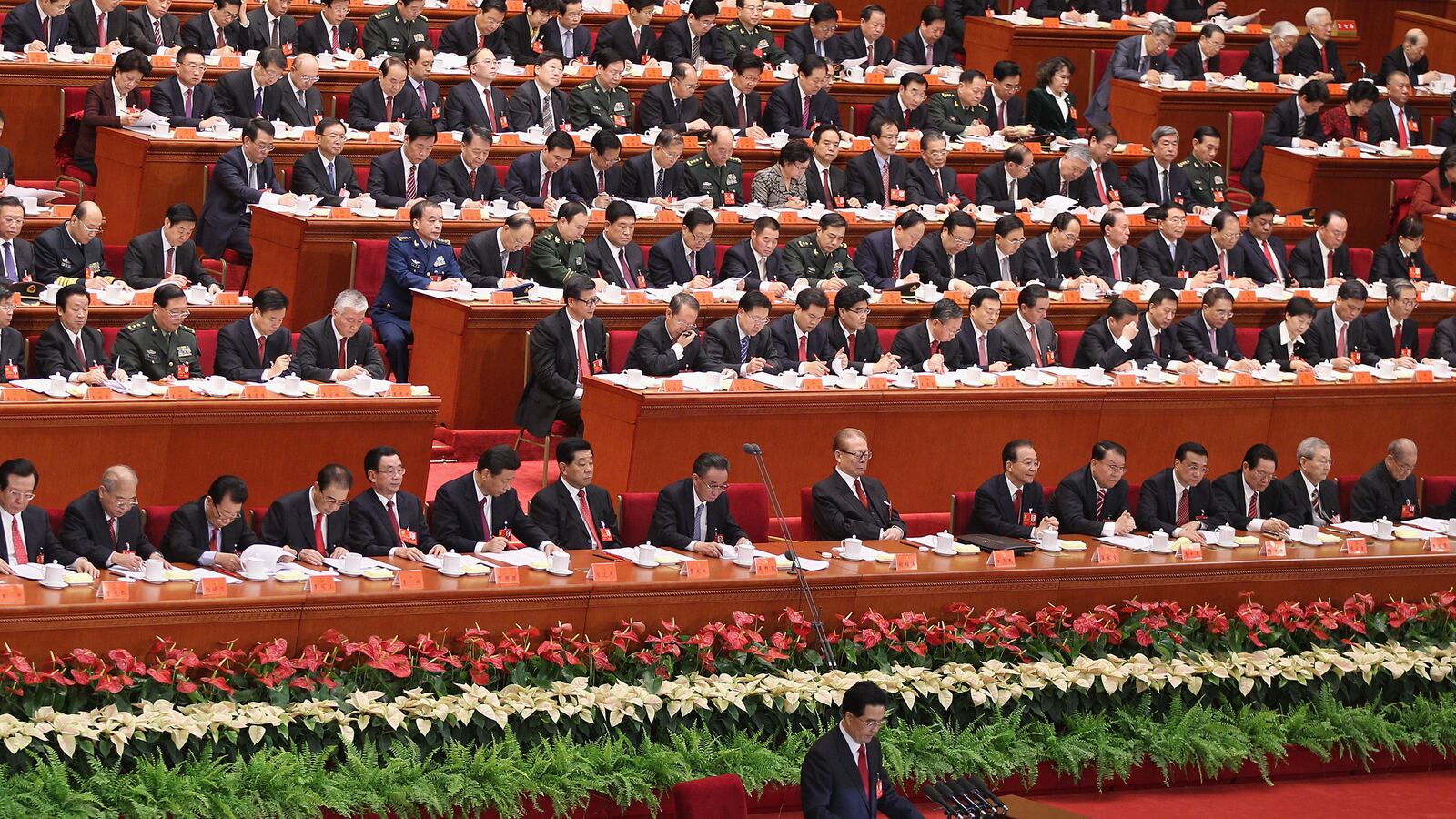As China’s 18th National Congress continues this week, images of bureaucrats reading tightly scripted remarks to other bureaucrats are being broadcast incessantly on television and on four-story screens adorning office buildings across the country. Predictably, however, only a tiny fraction of China’s 1.3 billion people seem to care about this once-in-a-decade transfer of power.

This sense of apathy is by design; the regime doesn’t want people to pay too close attention, as the new leaders are chosen by a faceless few behind guarded walls and closed doors in a notoriously opaque process, which not even the state-controlled news media, let alone the masses, are permitted to discuss.
Indeed, while the transition process airs on TV, and is fawned over by every anchor and pundit in a chorus of loyal adulation, the Chinese word for 18th Party Congress, or “18th big,” as it’s called here, is blocked from Chinese social networking sites. For the most part, the censors are successfully keeping the public distracted. While the fate of the world’s biggest country and second-largest economy is decided in secret, the top trending story online here since the Congress began is the celebrity wedding of a Chinese Olympic diver to the son of a Hong Kong tycoon.
Despite the relentless propaganda, the underlying message of scene after scene of hand-picked Communist Party delegates shown peering at their notes in Beijing’s Great Hall of the People is that the Chinese people are irrelevant to what’s happening. Or as dissident Chinese artist Ai Weiwei put it during a September interview with Taiwanese media, the Congress “will not cast any influence on society.”
The power of China’s top leaders has become increasingly diffuse over the years. This deliberate check on influence was instituted so the party can prevent a repeat of Chairman Mao’s catastrophic rule, in which tens of millions of Chinese were murdered or starved to death.
With the conclusion of the once-in-a-decade gathering just days away, China is still in the dark as to who will become the new members of the Politburo Standing Committee, China’s supreme ruling body. All that is known (meaning educated guesses) is that outgoing president Hu Jintao’s heir-apparent Xi Jinping will take his place, and that the stolid bureaucrat Li Keqiang will become premier.
China analysts, who have spent months reading the tea leaves, say that whoever steps on stage on Thursday—and they will surely be men in black who favor black hair dye—is beside the point. “Most people looking at the new Standing Committee will hardly be able to distinguish one from another,” said Steve Tsang, a professor of Chinese studies at the University of Nottingham in the United Kingdom. “It’s more than a cliché, this is what the system is producing.”
As the Congress has proceeded, party delegates have been quick to lavish praise on their leaders. Wan Qingliang, party secretary of Guangzhou province, found Hu’s speech last week so inspiring he felt compelled to announce “it raises my spirit to a higher level, and it makes my heart flutter.” One delegate from China’s hinterland was so moved she declared: “I shed tears five times when listening to President Hu’s report,” according to an article in the South China Morning Post.
But even as the government has sought to stifle commentary about the power shuffle, dissent has managed to slip through the cracks in China’s great firewall. Online, the reaction to the congress was less than enthused, especially on Chinese microblogs collectively known as Weibo. “Political meetings in other countries are for discussing serious issues,” wrote one Weibo user. “But in China, they are carnivals.”





